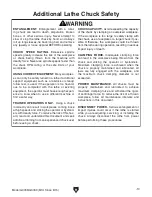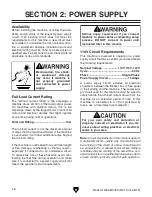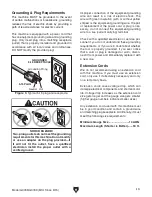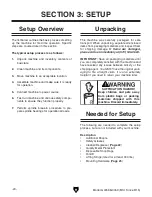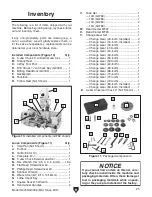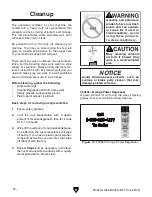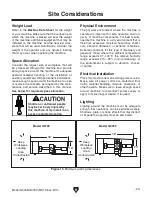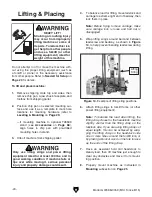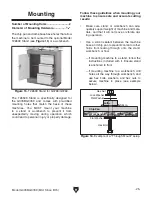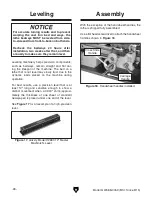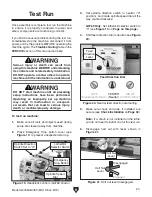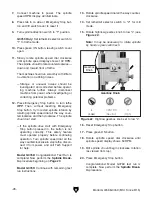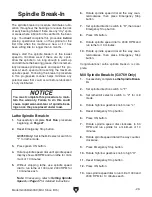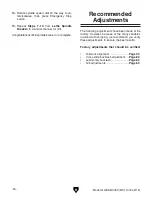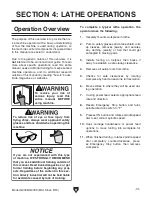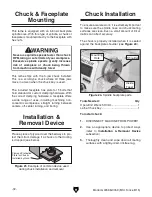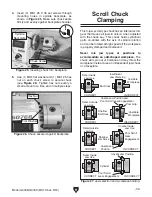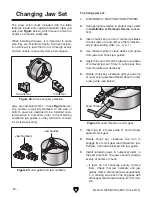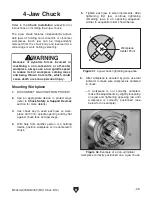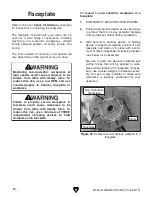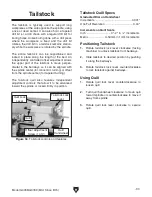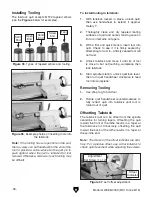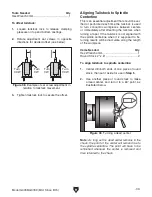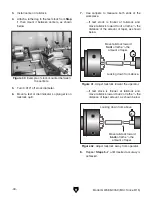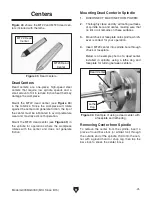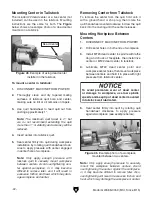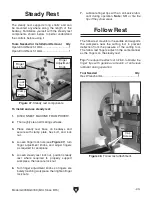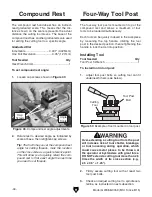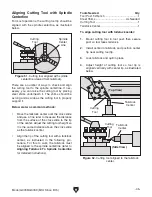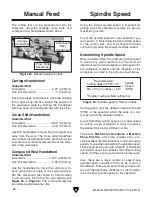
Model G0768/G0769 (Mfd. Since 8/15)
-31-
SECTION 4: LATHE OPERATIONS
Operation Overview
To complete a typical lathe operation, the
operator does the following:
1. Securely mounts workpiece in lathe.
2. Puts on safety glasses and a face shield, rolls
up sleeves, removes jewelry, and secures
any clothing, jewelry, or hair that could get
entangled in moving parts.
3. Installs tooling on toolpost, then backs it
away to establish a safe startup clearance.
4. Removes all setup tools from lathe.
5. Checks for safe clearances by rotating
workpiece by hand at least one full revolution.
6. Moves slides to where they will be used dur-
ing operation.
7. If using power feed, selects appropriate feed
rate and direction.
8. Resets Emergency Stop button and turns
spindle direction switch to "F".
9. Presses ON button and rotates spindle speed
dial to set correct spindle speed.
10. Uses carriage handwheels or power feed
options to move tooling into workpiece for
operations.
11. When finished turning, rotates spindle speed
dial completely counterclockwise, press-
es Emergency Stop button, then removes
workpiece.
The purpose of this overview is to provide the nov-
ice machine operator with a basic understanding
of how the machine is used during operation, so
the machine controls/components discussed later
in this manual are easier to understand.
Due to the generic nature of this overview, it is
not intended to be an instructional guide. To learn
more about specific operations, read this entire
manual, seek additional training from experienced
machine operators, and do additional research
outside of this manual by reading "how-to" books,
trade magazines, or websites.
To reduce your risk of
serious injury, read this
entire manual BEFORE
using machine.
If you are not experienced with this type
of machine, WE STRONGLY RECOMMEND
that you seek additional training outside of
this manual. Read books/magazines or get
formal training before beginning any proj-
ects. Regardless of the content in this sec-
tion, Grizzly Industrial will not be held liable
for accidents caused by lack of training.
To reduce risk of eye or face injury from
flying chips, always wear approved safety
glasses and face shield when operating this
machine.

